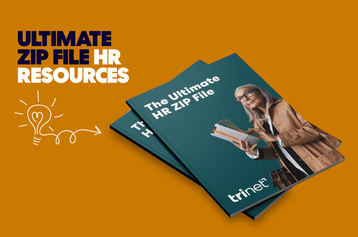How do I determine if my event planner employee is exempt or non-exempt?

Table of contents
- 1.Determining Exempt vs. Non-Exempt
- 2.Event Planner Employee
- 3.State Laws
- 4.FLSA Final Rule
- 5.Final Tip
- 6.Helpful Links:
Your event planner could be classified as exempt if they meet certain state laws and criteria under the Federal Labor Standards Act (FSLA).
Determining Exempt vs. Non-Exempt
Whether an employee is exempt or non-exempt, according to FSLA, is determined by the following three things:
- Their compensation
- The type of work the employee does
- Their specific duties
Event Planner Employee
There are several categories of exempt employees:
- Executive
- Administrative
- Professional
- Computer Professional
- Outside sales
- Highly Compensated
Under the Fair Labor Standards Act, an event or meeting planner could be considered an administrative employee and qualify for exemption if they satisfy all three of the following:
- They are compensated on a salary or fee basis of more than $455 per week.
- Their primary duty is the performance of office or non-manual work directly related to the management or general business operations of the employer or the employer's customers.
- Their primary duty includes the exercise of discretion and independent judgment in matters of significance.
In addition, the FSLA declared in this letter that an employee whose duties were similar to those of an event planner (including arranging conventions and events, dealing directly with customers, attending conferences with professional meeting planners, making bids for meetings, etc.) was an exempt administrative employee. However, had that employee made less than $455 weekly, they would not have qualified as exempt.
State Laws
You will also want to check with your state's laws because they can sometimes be more rigorous than federal laws. For instance, Colorado has specific regulations for the ski industry in terms of exempt or non-exempt status. California also has their own regulations that an employee must meet in order to qualify as exempt. On top of [more detailed criteria, an administrative employee must also earn a monthly salary that equates to at least two times the state minimum wage, and this is based on a 40-hour workweek.
FLSA Final Rule
On November 22, 2016, a federal court put a hold on the Department of Labor's increase to the minimum salary requirement for the Executive, Administrative, and Professional exemption under the Fair Labor Standards Act, which was scheduled to take effect on December 1, 2016. This is currently pending legal action.
Final Tip
Determining whether or not your employee qualifies as exempt should be looked at on a case by case basis, and the employee must fulfill all necessary criteria in order to be classified as exempt. Even if your employee is compensated at a higher rate than the minimum salary requirement, they still need to meet specific duties tests.
Helpful Links:
FLSA Overtime Security Advisor - DOL.gov Overtime Laws, US Department of Labor - DOL.gov DOL's Final Rule - DOL.gov

Ember DeVaul
Table of contents
- 1.Determining Exempt vs. Non-Exempt
- 2.Event Planner Employee
- 3.State Laws
- 4.FLSA Final Rule
- 5.Final Tip
- 6.Helpful Links:






